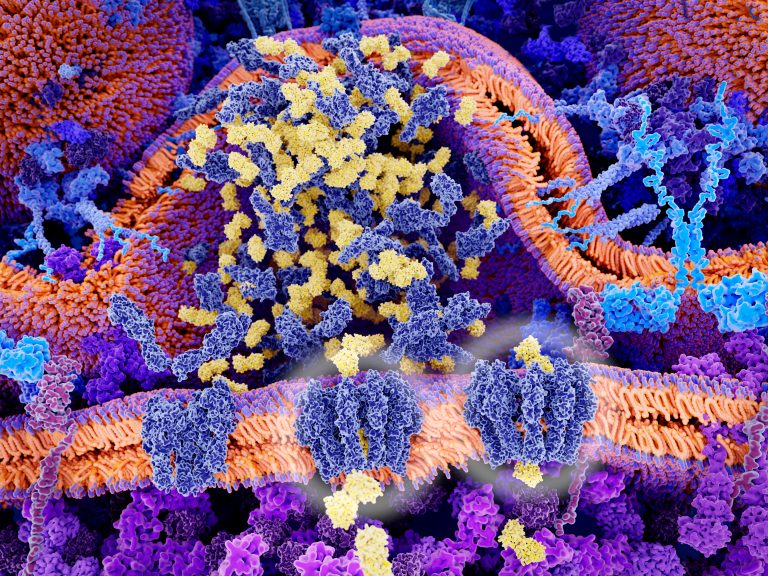
Preliminary findings from a trial involving cancer patients taking immune checkpoint treatment with PD-L1 inhibitors reveal that simultaneous treatment with angiotensin receptor II blockers (ARBs) improve patients’ responses. The results were presented by Julius Strauss, co-director of the clinical trials group at the Laboratory of Tumor Immunology and Biology, at the USA’s National Cancer Institute’s Center for Cancer Research, at the 32th EORTC-NCI-AACR Symposium on Molecular Targets and Cancer Therapeutics.
Commonly used for treatment of high blood pressure, heart failure, kidney failure and following a heart attack, ARBs block the action of angiotensin II. Earlier studies suggest that when angiotensin II binds to one of its receptors – known as AT1R – it may boost levels of other proteins, including VEGF and TGF, both of which are associated with cancer growth and resistance to cells of the immune system.
The research team pursued the dual treatment in an attempt to take advantage of the possible overlaps between the action of angiotensin II and the TGF beta pathway.
They reviewed information from nearly 600 cancer patients treated anti-PD-L1 drugs in 20 clinical trials. Many were already taking ARBs or angiotensin-converting enzyme (ACE) inhibitors for cardiac conditions unrelated to their cancer.
They further segregated patient data according to those who were taking ARBs (71 patients) and 82 patients on ACE inhibitor therapy (82).
“Patients who were taking ARBs seemed to respond better and more often to anti PD-L1 therapy for their cancer than patients who were not,” says Strauss. They found that ARBs were associated with a statistically significant increase in the objective response rate (ORR) as well as the complete response rate, compared to patients not taking ARBs.
In patients taking ARBs, the ORR was 34% compared to 17% in patients not taking ARBs, while the complete response (CR) rate, meaning the cancer had shrunk 100% and could no longer be seen on scans, was 11% in patients taking ARBS compared to 3% in those who were not. In contrast, treatment with ACE inhibitors did not lead to any improvement in ORR or CR rates.
The study also found evidence that those taking ARBs in addition to anti-PD-L1 therapy, may survive longer. This was seen in some cancers over other and was most notable in bladder cancer.
It is not clear why ARBs were helpful and ACE inhibitors, but the researchers suggest it may have to do with their binding action. “Although angiotensin II increases levels of VEGF and TGF beta when it binds to the AT1R receptor, it can actually decrease levels of VEGF and TGF beta when it binds to another receptor, AT2R,” says Strauss. “Therefore, ARBs which selectively block just AT1R potentially work better at lowering VEGF and TGF beta levels than ACE inhibitors which block both AT1R and AT2R.”













